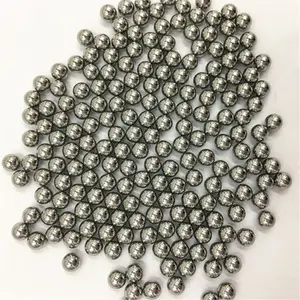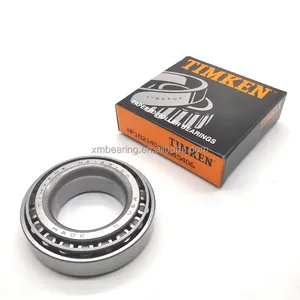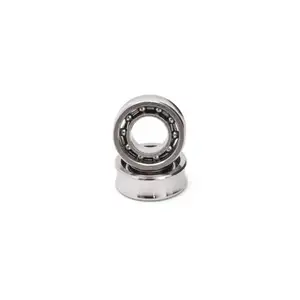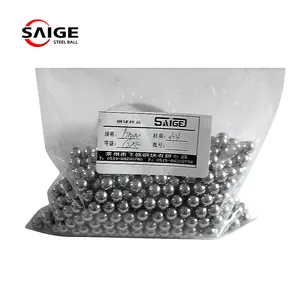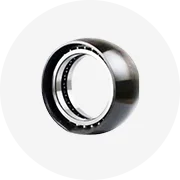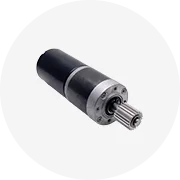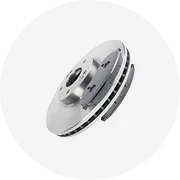Popular in your industry



















































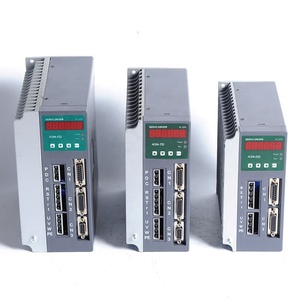







Top categories
About 200kg servo motors
The Role of Servo Motors in Industrial Applications
In the realm of industrial applications, servo motors stand as sophisticated control systems pivotal for precise and consistent motion control. These integral elements are ubiquitous across sectors, including robotics, manufacturing, automotive, and healthcare. Servo motors harness feedback control mechanisms, constantly recalibrating their position in response to signals from encoders or resolvers. This feedback loop is critical for the motor's ability to maintain its position, velocity, and torque, irrespective of fluctuating loads or external perturbations.
Engineers, manufacturers, and machine builders seeking meticulous motion control turn to servo motors. These devices are engineered to function seamlessly with other machinery within a closed-loop system, potentially incorporating sensors that monitor motor performance and facilitate instantaneous adjustments. Servo motors are versatile, finding utility in industries ranging from aerospace to packaging, where adherence to stringent operational parameters is indispensable.
At the heart of a servo motor lies the synergy between a motor and a control system. The motor itself is a robust actuator, delivering substantial torque at reduced speeds—essential for manipulating heavy loads or achieving precise positioning. The control system leverages this torque data to modulate the motor's velocity and position, guaranteeing controlled operation. It is this harmonization between motor and control system that enables exacting motion control in industrial environments.
Varieties of Servo Motors for Industrial Use
Industrial applications employ a spectrum of servo motors, each tailored with distinct attributes to meet diverse operational demands:
-
AC Servo Motors: Powered by alternating current, these motors are favored for their durability and high torque output. They are apt for a multitude of applications, including continuous rotation machinery such as conveyor belts and robotic arms in industrial automation.
-
DC Servo Motors: Operating on direct current, DC servo motors are chosen for scenarios where exact speed control is paramount, such as in precision tool positioning or robotic navigation along assembly lines.
-
Brushless Servo Motors: Merging the benefits of AC and DC types, brushless motors are known for their efficiency, quiet operation, and precision. They excel in applications demanding high-speed and accurate positioning, like medical apparatus or camera stabilization systems.
-
Linear Servo Motors: These are crafted for tasks that necessitate linear motion, as found in robotics or CNC machinery. They offer swift response times and exceptional precision in linear movements.
-
Hybrid Servo Motors: Integrating features of both AC and DC motors, hybrids strike a balance between cost and performance. They are adaptable and widely used in various industries where efficiency is key.
Each motor type is associated with specific use cases, informed by its unique characteristics such as speed range, torque delivery, and precision. The choice of servo motor hinges on the particular demands of the industrial process in question.
Selecting Servo Motors for Industrial Applications
Choosing the appropriate servo motor for an industrial task involves a meticulous evaluation of several factors. Companies must align their selection with the application's demands for speed, torque, and precision.
First, the operating environment of the motor must be considered. In conditions with variable temperatures and potential harshness, it is crucial to select a motor that can endure such challenges. For example, a motor with an IP65 rating or higher offers protection against particulates and moisture.
Second, the motor's compatibility with the existing system design is paramount. Given that servo motors are part of intricate systems including controllers and feedback mechanisms, it is essential that they match the current configuration in aspects such as mounting type, connection style, and interface requirements.
Furthermore, the motor's performance attributes, including speed, torque, and control, should be scrutinized. Applications necessitating high-speed may require motors capable of swift acceleration and deceleration. The torque needs will determine the motor selection; certain applications might call for high torque motors adept at managing strenuous start-up conditions.
Finally, the after-sales support provided by suppliers should not be overlooked. As uninterrupted operation is vital for businesses, opting for a supplier renowned for reliable technical support and quality service is invaluable.
Exploring Servo Motors for Industrial Applications on Alibaba.com
Alibaba.com distinguishes itself as a global marketplace that connects businesses with an extensive range of industrial components, including a diverse assortment of servo motors suited for myriad commercial uses. With a supplier base exceeding 200,000 across nearly 5,900 categories, Alibaba.com boasts an expansive inventory to satisfy the specific needs of any industry in need of precision motion control.
The platform's intuitive interface facilitates effortless product exploration, complemented by tools such as filtering options to streamline search results. This enables buyers to swiftly identify motors that align with their technical requirements, including torque capacity, speed, voltage, and more. Moreover, Alibaba.com's Trade Assurance service reassures buyers by safeguarding their payments until delivery confirmation.
Enterprises procuring servo motors through Alibaba.com benefit from competitive pricing, courtesy of the platform's extensive supplier network, and the possibility of bespoke solutions designed for unique needs. Alibaba.com's dedication to the growth of small and medium-sized businesses is evident in its support services, which simplify international trade by offering mobile purchasing and multilingual communication tools—underscoring its commitment to facilitating business globally.
Frequently Asked Questions About Servo Motors in Industrial Applications
What are the primary benefits of employing servo motors in industrial settings?
Servo motors are lauded for their precision in controlling position, speed, and torque, which is essential for tasks demanding high accuracy and operational efficiency. They are routinely utilized in manufacturing environments for functions such as conveyor systems, CNC machinery, and pick-and-place operations.
How can I ascertain the correct servo motor size for my application?
Choosing the right size for a servo motor should be based on the torque and speed demands of the application. It is crucial to ensure that the motor's specifications are in line with the operational requirements to guarantee peak performance and efficiency.
Are servo motors suitable for continuous operation?
Indeed, numerous servo motors are engineered for continuous usage and are capable of sustaining constant torque across various speeds. Nonetheless, it is advisable to consult the motor's specifications to confirm its compatibility with the required duty cycle for your application.
Do different types of servo motors cater to specific industrial requirements?
Certainly, the market offers a variety of servo motors, including linear and rotary actuators, standard and high-torque models, and comprehensive motion control systems. Each variant caters to distinct needs within industrial automation.
What considerations are important when selecting a servo motor for a high-precision task?
For high-precision applications, it is important to opt for servo motors equipped with high-resolution encoders, minimal vibration, and robust torque. Additionally, the motor's capacity to maintain consistent performance under dynamic loads should be taken into account.
How does the duty cycle influence the selection of a servo motor?
The duty cycle refers to the proportion of time a servo motor can operate within a specific time frame. Motors with a higher duty cycle are suited for continuous or intensive applications, while those with a lower duty cycle are more appropriate for intermittent use.
Which industries are frequent users of servo motors?
Servo motors find widespread application in sectors such as automotive, aerospace, telecommunications, and any field that demands precise movement control. They are integral to equipment like CNC routers, printing presses, and a variety of manufacturing devices.
Is customization of servo motors feasible for particular industrial uses?
Many suppliers provide customization services for servo motors to meet the exacting requirements of an industrial application. Custom features can encompass motor dimensions, encoder resolution, and specific cabling and connectors.
How can I ensure that the servo motor is compatible with other components in my system?
To guarantee compatibility, verify that the servo motor's specifications correspond with those of other system components, such as drivers/controllers, mounting apparatus, and mechanical interfaces. Customizations may be necessary to align standard components with your system's specifications.
What materials are commonly employed in the construction of servo motors?
Servo motors are typically constructed from materials like stainless steel, aluminum alloys, and various steel grades, chosen for their strength, weight, and in some cases, cost-effectiveness.
What does maintaining a servo motor entail?
Maintenance of servo motors generally involves routine inspections for wear, cleaning of parts, and lubrication of moving components. Some suppliers offer maintenance kits to facilitate this process.


